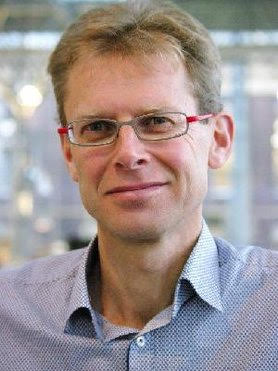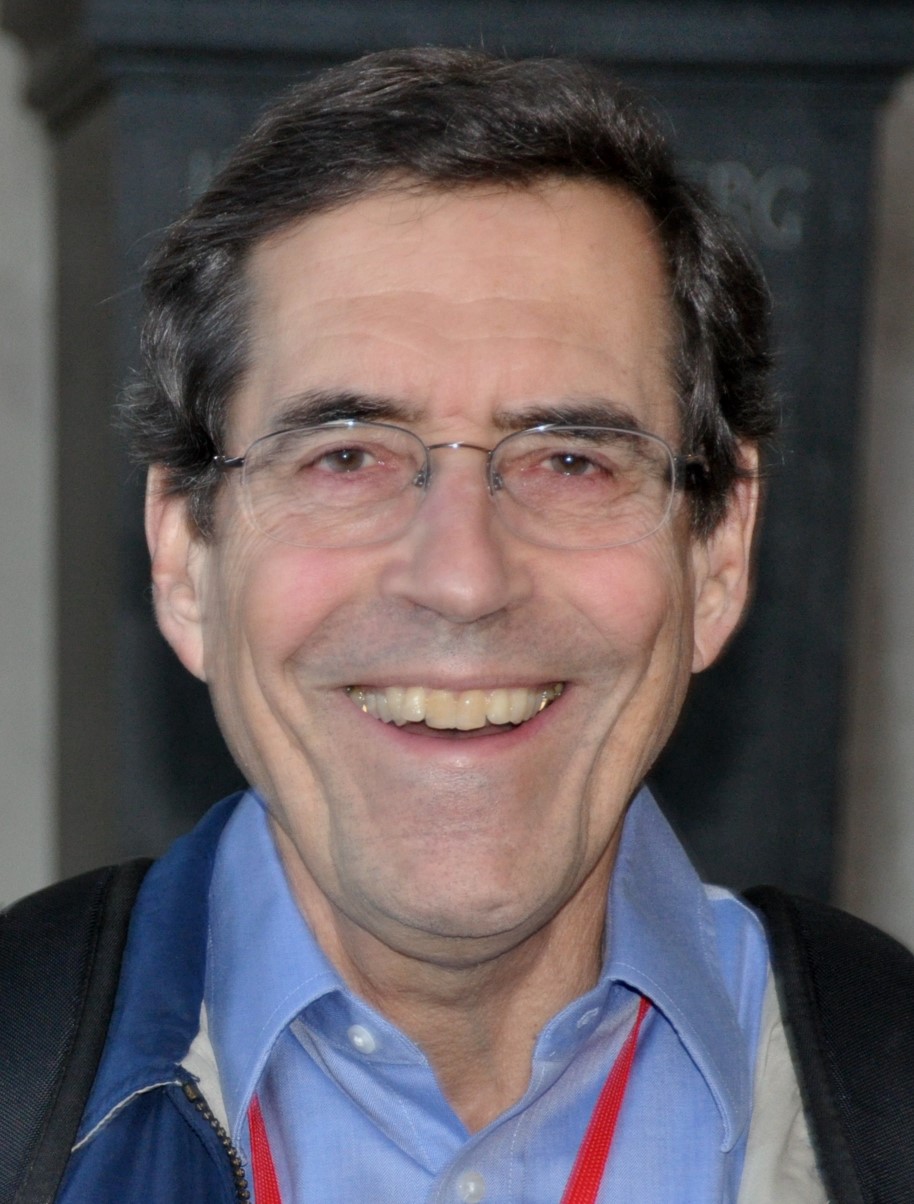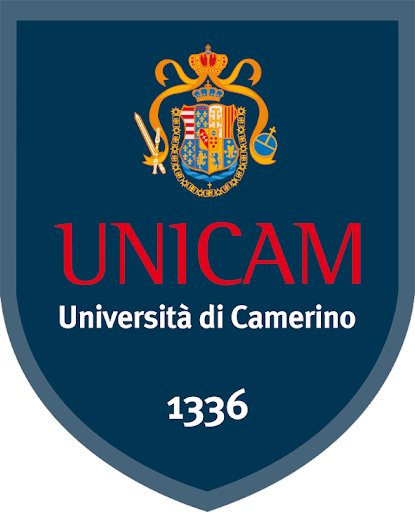CONFERENCE PROGRAM
Day 1 (September 13, 2023)
| 8:15-9:00 | Registration of participants |
| 9:00-9:30 | Opening |
| 9:30-10:30 |
Keynote #1: "Open Data: Everything Everywhere All at Once"
Bastiaan van Loenen |
| 10:30-11:00 | Coffee break |
|
Session 1 - Applied Business Informatics
Chair: Robert Andrei Buchmann - University of Cluj-Napoca |
|
| 11:00-11:25 |
Towards Healthcare Digital Twin Architecture
Mubashar Iqbal, Sabah Suhail, Raimundas Matulevičius and Rasheed Hussain |
| 11:25-11:50 |
Towards Agile Requirements Engineering in Maritime Freight Transportation
Irbe Apine and Marite Kirikova |
| 11:50-12:15 |
User interaction mining: discovering the gap between the conceptual model of a geospatial search engine and its corresponding user mental model
Dagoberto José Herrera Murillo, Javier Nogueras-Iso, Paloma Abad-Power and Francisco J. Lopez-Pellicer |
| 12:15-12:40 |
Managing Variability of Large Public Administration Event Log Collections: Dealing with Concept Drift
Flavio Corradini, Caterina Luciani, Andrea Morichetta and Marco Piangerelli |
| 12:40-13:00 |
Digital Store Window: A Promising Approach for Stationary Retailer in Germany?
Soeren Aguirre Reid and Richard Lackes (Short Paper) |
| 13:00-14:20 | Lunch |
|
Session 2 - New trends in data governance
Chair: Vaclav Repa - University of Economics, Prague |
|
| 14:20-14:45 |
Analyzing Open Government High Value Datasets: Availability, Publishers’ Contribution and Technical Specifications
Maria Ioanna Maratsi, Mohsan Ali, Charalampos Alexopoulos, Stuti Saxena, Nina Rizun and Yannis Charalabidis |
| 14:45-15:10 |
Open Government Data (OGD) in educational programs curriculum: Current State and Prospects
Georgios Papageorgiou, Euripides Loukis, Georgios Pappas, Nina Rizun, Stuti Saxena, Yannis Charalabidis and Charalampos Alexopoulos |
| 15:10-15:35 |
Value Creation from Data Science Applications - A Literature Review
Matthias Pohl, Christian Haertel and Klaus Turowski |
| 15:35-15:55 |
Knowledge Visualization towards Digital Literacy Development: Critical Success Factors
Janina Kotze and Hanlie Smuts (Short Paper) |
| 15:55-16:15 |
Predicting Patterns of Firms' Vulnerability to Economic Crises Using Open Data, Synthetic Minority Oversampling Technique (SMOTE) and Machine Learning
Euripidis Loukis, Mohsan Ali and Yannis Charalabidis (Short Paper) |
| 17:00-00:00 | Social event (Visit to a Winery and Dinner at the Beach) |
Day 2 (September 14, 2023)
| 8:15-9:10 | Registration of participants |
| 9:10-9:30 | Opening |
| 9:30-10:30 |
Keynote #2: "Roles and Risks of AI in the Pursuit of Sustainable Innovation"
Steven Alter |
| 10:30-11:00 | Coffee break |
|
Session 3 - ICT Governance/Management
Chair: Björn Johansson - University of Linkoping |
|
| 11:00-11:25 |
Developing Digital Competencies in Small and Medium-sized Enterprises through Microlearning Applications: Semi-Systematic Literature Review and Research Outline
Ekaterina Veldyaeva, Lukas R. G. Fitz and Jochen Scheeg |
| 11:25-11:50 |
Exploring Techno-invasion and Work-Life Balance on Digital Platforms: A Preliminary Study with Amazon MTurk’s Gig Workers
Hasan Koç and Chingiz Gasimov |
| 11:50-12:15 |
Enriching enterprise architecture stakeholder analysis with Relationships
Anders Tell and Martin Henkel |
| 12:15-12:40 |
Exploring Smart Meters: What we Know and What we Need to Know
Shashini Rajaguru, Björn Johansson and Malin Granath |
| 12:40-13:00 |
AOAME4UserStories with the User Story Modelling & Notation (USMN)
Marco Mancuso and Emanuele Laurenzi (Short Paper) |
| 13:00-14:10 | Lunch |
|
Session 4 - Business & IS development
Chair: Kurt Sandkuhl - University of Rostock |
|
| 14:10-14:35 |
Model-based Digital Business Ecosystems: a Method Design
Chen Hsi Tsai, Jelena Zdravkovic and Janis Stirna |
| 14:35-15:00 |
A Model-driven Approach to Decision Support for Designing Inclusive Services
Helena Zhemchugova, Paul Johannesson and Gunnlaugur Mangnússon |
| 15:00-15:25 |
Improving IT, Security and Privacy Using Fractal Enterprise Modeling: A Case of a Financial Institution
Steven Leego and Ilia Bider |
|
Session 5 - Business & IS development II
Chair: Emanuele Laurenzi - FHNW |
|
| 15:25-15:50 |
Validating Enterprise Architecture Principles using Derivation Rules and Domain Knowledge
Devid Montecchiari and Knut Hinkelmann |
| 15:50-16:15 |
Towards a framework for intelligent Cyber-Physical Systems (iCPS) design
Sofia Abadia, Oscar Avila and Virginie Goepp |
| 16:15-16:40 |
Extending Conceptual Model with Object Life Cycles
Václav Řepa |
| 16:40-17:00 | Coffee break |
|
Session 6 - AI applications and use cases in businesses
Chair: Janis Grabis - Riga Technical University |
|
| 17:00-17:25 |
A Flexible, Extendable and Adaptable Model to Support AI Coaching
Ritu Duhan, Charuta Pande and Andreas Martin |
| 17:25-17:50 |
Morphological Box for AI Solutions: Evaluation & Refinement with a Taxonomy Development Method
Jack Daniel Rittelmeyer and Kurt Sandkuhl |
| 17:50-18:15 |
Explainable AI for the Olive Oil Industry
Christian Schmid, Emanuele Laurenzi, Umberto Michelucci and Francesca Venturini |
| 18:15-18:50 | Closing |
| 19:00-20:00 | BIR steering commitee meeting |
| 20:00-00:00 | Social Event (Dinner at L'Annunziata and music session) |
WORKSHOP/DC PROGRAM
Day 3 (September 15, 2023)
| 8:15-8:35 | Opening and Welcome (Room:Sala Dell'affresco) | ||
| Virtual room | Virtual room | Virtual room | |
| 8:35-11:00 | OMILAB-KNOW Workshop (Room: Sala Dell'affresco) Session 1 Chair: Anne Gutschmidt |
Doctoral consortium (Room: A117) Session 1 Chair: Barbara Re |
BITA Workshop (Room: A121) Session 1 Chair: Kurt Sandkuhl |
|
Using the Fractal Enterprise Model for Analyzing and Predicting Effects from Introducing IT solutions
Giorina Maratsi and Ilia Bider |
Reimagining Open Data Ecosystems: A Practical Approach Using AI, CI, and Knowledge Graphs
Umair Ahmed |
Exploring the role of aggregators in the ecosystem of energy flexibility
Amirhossein Gharaie and Björn Johansson |
|
|
MIoTA: Modeling IoT Applications for Air Conditioning Facilities with ADOxx
Benjamin Nast, Kurt Sandkuhl, Stefan Paulus and Heiko Schiller |
Open data co-creation, a path for better public services
Héctor Ochoa-Ortiz |
A Methodological Approach for Ontology-based Meta-Modelling (short paper)
Emanuele Laurenzi |
|
|
A modeling method for strategic design of induced Semantic Digital Nudging
Ștefan Uifălean and Robert Andrei Buchmann |
Applying Management Theories as a Conceptualization Lens for Knowledge Graphs and Conceptual Modeling Methods
Andrei Chis |
Orchestrating progression of Enterprise Data into actionable intelligence using Conceptual Modelling (short paper)
Vasile Ionut-Remus Iga, Ana-Maria Ghiran and Cristina-Claudia Osman |
|
|
Advancing the BPMN 2.0 Standard with an Extended Animated Notation: A Research Program for Token-Based Process Modeling Education
Ilia Maslov and Stephan Poelmans |
Technical aspects for inclusiveness across user domains in data portals
Abdul Aziz |
Business Intelligence in Wearable Health: Transforming Smartwatch Data into Actionable Insights
Avnish Singh Jat |
|
|
Comparison of General-Purpose and Domain-Specific Modelling Languages in the IoT domain: A case study from the OMiLAB Community
Arianna Fedeli, Nils Beutling, Emanuele Laurenzi and Andrea Polini |
Workplace Safety Know-How: Enhancing Workplace Safety through the Capability Driven Solution (short paper)
Ruta Pirta-Dreimane and Ralfs Matisons |
||
| 11:00-11:30 | Coffee break | ||
| 11:30-13:30 | OMILAB-KNOW Workshop (Room: Sala Dell'affresco) Session 2 Chair: Ana-Maria Ghiran |
Doctoral consortium (Room: A117) Session 2 Chair: Björn Johansson |
Workflow Optimization at Financial Institutions: Survey and Case Study
Oskars Rodiņš |
|
ISMS in Small Public Sector Organisations: Requirements and Design of a Procedural Approach (short paper)
Frank Moses and Kurt Sandkuhl |
|||
|
Bridging Haptic Design Thinking and Cyber-Physical Environments through Digital Twins using Conceptual Modeling
Alexander Völz, Christian Muck, Danial M. Amlashi and Dimitris Karagiannis |
Building Competencies for Digital Transformation in Small and Medium-Sized Enterprises
Ekaterina Veldyaeva |
ManComp workshop (Room: A121) Session 1 Chair: Mārīte Kirikova |
|
|
Towards a Democratic AI-based Decision Support System to Improve Decision Making in Complex Ecosystems
Robert Woitsch, Christian Muck, Wilfrid Utz and Herwig Zeiner |
Micro and Small Enterprises in Networked Business Ecosystems
Lukas R. G. Fitz. |
||
|
Semantically annotated Learning Paths (short paper)
Charline Unternährer, Knut Hinkelmann and Sandra Schlick |
DISCUSSION |
Handling Variability of Maritime IT Solutions (short paper)
Umut Kandemir and Marite Kirikova |
|
| B4TDS workshop (Room: Sala Dell'Affresco) Session 1 Chair: Alessandro Marcelletti |
Generic Requirements Template for Data Analytics
Aritha Kumarasinghe and Marite Kirikova |
||
|
Variability Modelling in Enterprise Architecture Management – Survey on Existing Approaches
Ahmed Dehne and Kurt Sandkuhl |
|||
|
A tool to easing the configuration and deploying process of Hyperledger Fabric
Domenico Cantone, Daniele Francesco Santamaria and Vincenzo Spinello |
Constraint based Modeling according to Reference Design
Erik Heiland, Peter Hillmann and Andreas Karcher |
||
| 13:30-14:30 | Lunch | ||
Keynotes
Abstract
Over the last decade, open data has been trending with a focus on open government data. Some argue that we are now experiencing the third wave of open data that includes the re-use of data created or collected by companies as well as universities and citizens. In the third wave, we should celebrate various types of data users and the real-world impacts of their data use. However, as of today, evidence of the success of open government data does not go much beyond ‘millions of data downloads’ in open data portals. Information on open data users is scant and as a consequence, its true impact including the social impact, is undervalued even though open data could be everything, everywhere, all at once. This keynote will build on the third wave of open data to show the value open data may have for companies as users as well as providers of open data and propose steps to achieve a sustainable open data ecosystem.
Speaker

Dr.ir. Bastiaan van Loenen is Associate Professor of Geo-information Science in the Department of Architecture and the Built Environment, Delft University of Technology, the Netherlands. Bastiaan is chairing the TU Delft’s Knowledge Center Open Data, as well as the Geo-information infrastructure committee of the Dutch Geodetic Commission, and the scientific coordinator of the EU project Towards a sustainable open data ecosystem (ODECO).
Currently his main focus is on the governance of open data and approaches towards sustainable open data ecosystems with a focus on geographic information. Of special interest is the concept of the open (data) city where citizens, companies and government together, with equal information positions, design and develop the city of the future.
More information here.
Abstract
Artificial intelligence, sustainability, innovation, and sustainable innovation are discussed passionately, but often with little or no agreement about the meaning of those terms. Highly abstract discussions in those areas often touch upon important social, political, and economic issues but float far above real-world practicalities that business informatics needs to address.
This keynote proposes an approach for moving the discussion of AI and sustainable innovation forward within business informatics. That approach starts with definitions that can be applied in describing and understanding operational systems. Those definitions are applied in explaining a spectrum of roles that AI can play through digital agents that pursue responsibilities related to specific facets of work in real world situations. The result is a view of AI, sustainable innovation, and related opportunities and risks that is directly applicable for determining system requirements, describing operational systems, and evaluating operational results.
Speaker

Steven Alter is a Professor Emeritus at the University of San Francisco. His experience as vice president of a manufacturing software start-up and author of four editions of an IS textbook led to development of the “work system method,” a systems analysis and design approach that business professionals can adapt and use for their own understanding and for collaborating with IT professionals, consultants, and vendors. The underlying ideas were formalized as work system theory, which has been extended in many articles and conference papers over several decades. His continuing research aims to articulate a broader work system perspective that can serve as an integrated lens for high level discussions of sociotechnical and totally automated work systems while also providing paths for exploring specific aspects of work systems in substantial detail.

Social events
13/09 - Wine Tasting and Dinner in San Benedetto del Tronto
We will travel by bus to the hilly area of Piceno, located between Ascoli Piceno and San Benedetto del Tronto. We will accompany ourselves with tastings of local wines produced by an important winery. We will start from here, around 5PM and head towards a winery where, weather permitting, the tasting will take place in the vineyard during a clearly central period in wine production, such as the harvest. Subsequently, without descending towards the valley, we will head towards the municipality of Offida, one of the most characteristic villages in the province of Piceno. We will then resume the journey towards the coastline. We will arrive at around 8:30 PM on the seafront of San Benedetto del Tronto, at the restaurant "La Croisette," where we will be able to enjoy a seafood dinner. Before midnight, we are scheduled to depart towards Ascoli Piceno, where we will arrive before approximately 12:30 AM.
14/09 - Dinner at Colle dell'Annunziata
The dinner will take place in the area in front of the Annunziata convent and will be accompanied by a music session.